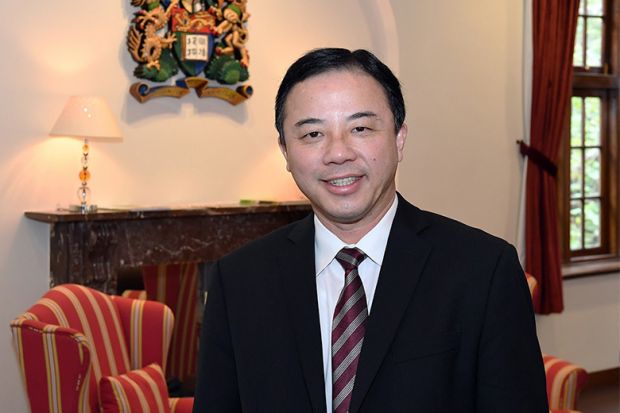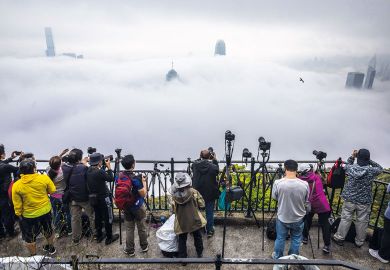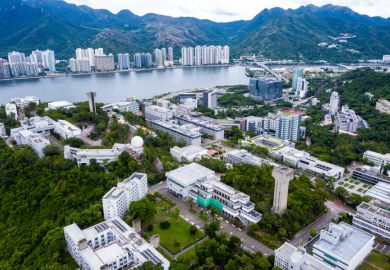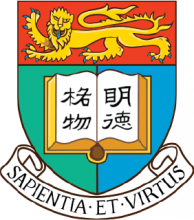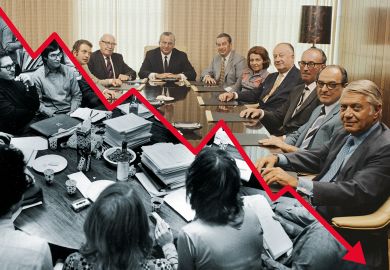The vice-chancellor of the University of Hong Kong (HKU) has called for better protection for staff against “malicious” allegations, after being cleared in a misconduct investigation.
Xiang Zhang, who has led the institution since 2018, was accused by whistleblowers of mishandling donations from mainland China and failing to follow recruitment procedures, among other allegations. After a six-month investigation, the university’s council has concluded that the claims were unsubstantiated.
Responding to the news, Professor Zhang said the outcome reflected that the “malicious allegations lacked any factual basis” and described himself as the victim of a “severe campaign of slander” via anonymous emails. He claimed that there was evidence of a “prolonged effort” to extract confidential information from university departments “with the sole purpose of distorting facts to mislead the public and to serve an unknown ulterior motive”.
“Universities must appropriately employ anonymous reporting systems for whistleblowers, to respect and protect the rights of those implicated when the veracity of the allegations remains uncertain,” Professor Zhang said in a statement. “This is necessary to prevent abuse of the system and to prevent the unhealthy trend of defamation and false accusations.”
When the allegations emerged in October, HKU staff members told Times Higher Education that the accusations reflected wider faculty frustrations with senior leadership, including Professor Zhang’s “heavy-handed” approach to managing the university.
They also came to light amid a delicate political climate in Hong Kong, with some scholars regarding Professor Zhang, a Nanjing-born Chinese American who had not worked in the city before his appointment, with suspicion.
Speaking to local press after the university’s council cleared the vice-chancellor, Hong Kong’s education secretary, Christine Choi, said she hoped the region could learn from the experience and “move on”.
But Professor Zhang said the damage the incident had caused could not be “easily remedied” and warned that the university’s international reputation had been “tarnished”.
“Colleagues now fear being involved in unfounded complaints, and such fear greatly hampers their daily work. Moreover, the university’s development plans have suffered setbacks and, in some cases, have been put on hold. The global talent recruitment scheme has been hindered and top international scholars who had previously committed to joining HKU were deterred,” he said.
The university’s council has produced a report on the investigation, which it said would be reviewed by relevant departments to prevent a recurrence of the incident and to “enhance governance”. Professor Zhang committed to support the reforms, the details of which have not been shared publicly.
“I sincerely hope that the university can swiftly get back on track, set aside prejudices, stay free from interference and restore a sense of tranquillity,” he said. “Every colleague will be able to re-engage positively in his work, and together we will recover the opportunities and time that have been wasted.”
Register to continue
Why register?
- Registration is free and only takes a moment
- Once registered, you can read 3 articles a month
- Sign up for our newsletter
Subscribe
Or subscribe for unlimited access to:
- Unlimited access to news, views, insights & reviews
- Digital editions
- Digital access to THE’s university and college rankings analysis
Already registered or a current subscriber? Login
